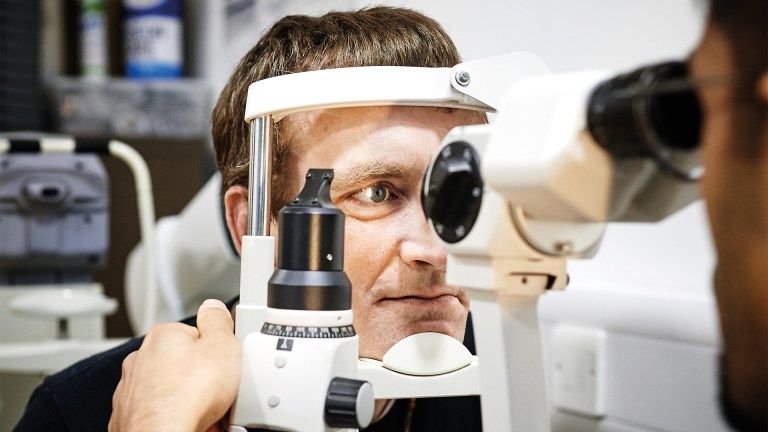For respondents in the research who did seek professional help, 67% said they saw an improvement in their mental health.
Recognising the positive impact of talking about mental health, Time to Talk Day, an annual awareness day held this year on 1 February, was created and is run annually by Mind and Rethink Mental Illness. It’s a day all about getting the nation talking about mental health, encouraging people not only to talk to professionals, but to simply start a conversation about mental health with whoever is around.
Sturmer said that if you notice you are feeling “absent” or “overwhelmed”, or are struggling to cope with everyday life, it might be your cue to ask for help
Harmeet accessed Talking Therapies, a decision she said “initially helped” with her depression.
“It helped pull me out of the dark hole I found myself in,” the 40-year-old said. “I was able to share what
felt heavy and release the weight I had been carrying.”
After trying for a second child, Harmeet experienced a miscarriage, leaving her once again depressed and anxious, struggling to even leave the house.
Advertising helps fund Big Issue’s mission to end poverty
This time, she didn’t wait – she self-referred for cognitive behavioural therapy through NHS Talking
Therapies. Over the years, she has accessed the service on several occasions, noting how she was able to create a toolkit of resources to help with her mental health.
“I can’t shout about it enough,” Harmeet said. “My mental health is better than ever before.”
Like Harmeet, research shows that the most common moment women said they knew they needed to ask for help was when they realised they were consistently unhappy. For men, that moment to open up usually comes when they can’t keep their feelings bottled up any longer.
Sturmer said her clients approach her for help at varied points on their journeys. “Some are able to ask for help when we notice that something isn’t quite right,” she said. “But often, we leave these feelings.”
As with physical wellbeing, Sturmer said it can be so much easier to improve mental health if it’s treated before reaching a crisis point. But even if it does reach a crisis point, there is still hope.
Paul, a 55-year-old in the West Midlands is a 6ft rugby-playing detective who was diagnosed with PTSD in 2009. Over the following seven years, he went on to have several breakdowns, eventually retiring in 2016 due to his mental health.
Advertising helps fund Big Issue’s mission to end poverty
Even though he had found it hard to admit both to himself and others that he was struggling, he was desperate for help, and after researching mental health services online, he too self-referred to NHS Talking Therapies.
“When I first sought help, I felt that someone cared immediately,” he said. “During those first conversations over the phone, and when I walked in for my first appointment and was met by the receptionists’ smiley eyes, I felt comfortable and welcomed and that someone was going to listen.”
For 18 months, Paul – whose name has also been changed to protect his identity – received cognitive behavioural therapy, counselling, and EMDR. Years later, he feels equipped with tools to help him cope on a daily basis. He is now quick to encourage people not to wait to open up to a professional about how they are feeling.
“I know what it’s like to be on the other side of the door, being scared to walk in and tell someone the things you have never told anyone or haven’t even admitted to yourself,” Paul said. “Just getting through that door is such an important step to getting yourself out of a negative cycle and to building a life that is even better than the one you had before.“
This article is taken from The Big Issue magazine, which exists to give homeless, long-term unemployed and marginalised people the opportunity to earn an income. To support our work buy a copy!
If you cannot reach your local vendor, you can still click HERE to subscribe to The Big Issue or give a gift subscription. You can also purchase one-off issues from The Big Issue Shop or The Big Issue app, available now from the App Store or Google Play
Advertising helps fund Big Issue’s mission to end poverty










